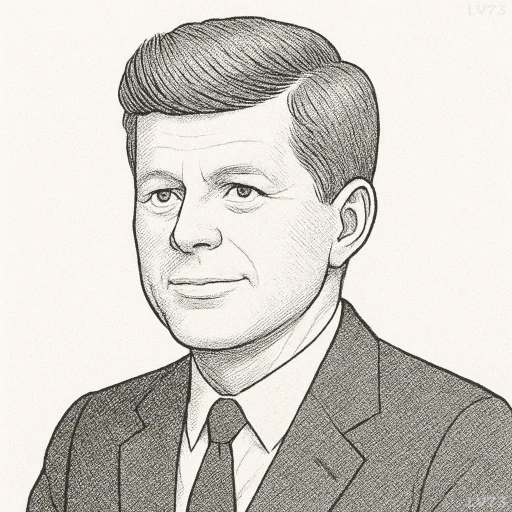“If we cannot now end our differences, at least we can help make the world safe for diversity.”

- May 29, 1917 – November 22, 1963
- American
- Politician
table of contents
Quote
“If we cannot now end our differences, at least we can help make the world safe for diversity.”
Explanation
In this statement, John F. Kennedy advocates for the importance of tolerance and mutual respect in a world that is often divided by differences in culture, ideology, and identity. He acknowledges that global peace and unity may not be immediately achievable, especially in the context of the Cold War and ideological rivalries, but he insists that we can at least work towards a world where diversity is protected and celebrated. The phrase “safe for diversity” speaks to the idea of creating spaces where differences—whether political, religious, racial, or cultural—are not only tolerated but also respected as part of a global fabric. In essence, Kennedy is calling for a peaceful coexistence where people with differing viewpoints, backgrounds, and beliefs can live alongside one another without fear of persecution or conflict.
Kennedy’s words came at a time when the Cold War between the United States and the Soviet Union was at its height, and ideological divides were deepening globally. Within the United States, the Civil Rights Movement was challenging long-standing racial divisions, and issues of equality and justice were at the forefront of the national consciousness. In this context, Kennedy’s statement is both a call for peace between nations and a plea for tolerance and understanding within society itself. The idea of making the world “safe for diversity” suggests that while achieving full harmony may be difficult, we must at least ensure that the right to difference—whether in thought, culture, or identity—is protected.
In today’s world, Kennedy’s quote remains deeply relevant, as we continue to navigate challenges related to globalization, immigration, and cultural exchange. Issues such as religious intolerance, racism, and political polarization remind us that differences can often lead to conflict, but Kennedy’s vision encourages us to foster a world in which diverse perspectives are not only tolerated but valued. As societies become increasingly interconnected, creating spaces that are “safe for diversity” means promoting inclusivity, protecting minority rights, and ensuring that all people, regardless of background, have the opportunity to live in peace. Kennedy’s call is ultimately a reminder that the diversity of the human experience should be seen as a source of strength, not division, and that our shared humanity requires a commitment to understanding and respecting the differences that make us unique.
Would you like to share your impressions or related stories about this quote in the comments section?
